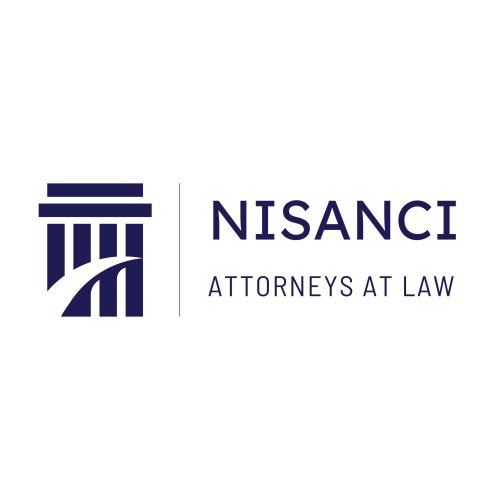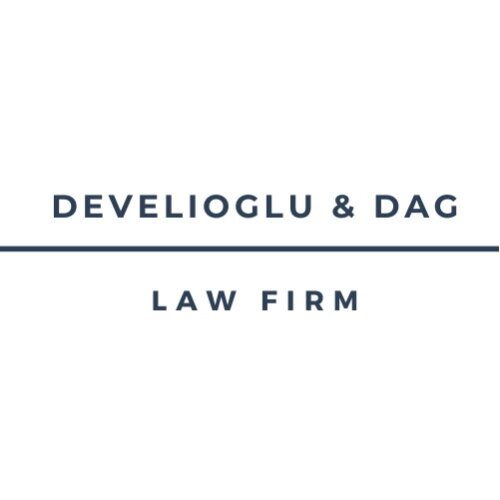Best ADR Mediation & Arbitration Lawyers in Turkey
Share your needs with us, get contacted by law firms.
Free. Takes 2 min.
Or refine your search by selecting a city:
List of the best lawyers in Turkey
Turkey ADR Mediation & Arbitration Legal Articles
Browse our 3 legal articles about ADR Mediation & Arbitration in Turkey written by expert lawyers.
- Enforce ISTAC Arbitration in Turkish Commercial Leases
- ISTAC arbitration clauses allow commercial landlords and tenants to bypass the 2-3 year backlog in Turkish civil courts, often resolving disputes within 6 months. A valid arbitration agreement must be in writing and clearly state the parties' intent to refer specific disputes to the Istanbul Arbitration Centre (ISTAC). Turkish law... Read more →
- How to Enforce Foreign Arbitral Awards in Turkey: A Guide
- Turkey is a signatory to the New York Convention, meaning foreign arbitral awards are generally enforceable provided there is reciprocity between Turkey and the country where the award was rendered. The enforcement process, known as "Tenfiz," requires a formal lawsuit in a Turkish Civil Commercial Court to convert a foreign... Read more →
- Arbitration in Turkey
- The arbitration scene in Turkey is mainly occupied by four institutions, namely: Turkish Bar Association Arbitration Centre, Turkish Insurance Arbitration Commission, Istanbul Arbitration Centre(ISTAC), Istanbul Chamber of Commerce Arbitratiın Centre(ITOTAM). All four of these institutions process and resolve a large number of disputes of monetary value.A recent development in Turkish... Read more →
About ADR Mediation & Arbitration Law in Turkey
Alternative Dispute Resolution (ADR) in Turkey encompasses mediation and arbitration as effective methods to solve disputes outside of traditional court proceedings. Introduced as part of judicial reforms, these methods aim to provide faster and cost-effective solutions. Mediation is largely used in civil, commercial, and consumer disputes, while arbitration is predominantly utilized in commercial conflicts, especially where there is an international component.
Why You May Need a Lawyer
Individuals and businesses may require legal assistance in ADR Mediation & Arbitration in Turkey for various reasons:
- Understanding and navigating the ADR process, especially if unfamiliar with Turkish legal systems.
- Evaluating the suitability of mediation or arbitration over traditional litigation.
- Drafting and reviewing arbitration agreements to ensure enforceability.
- Representation during mediation or arbitration sessions.
- Assisting in enforcing or challenging arbitration awards in Turkish courts.
- Advising on cross-border disputes which entail international arbitration regulations.
Local Laws Overview
Key aspects of local laws relevant to ADR Mediation & Arbitration in Turkey include:
- Mediation Law No. 6325: Establishes mediation as a voluntary process and outlines the qualifications and responsibilities of mediators.
- International Arbitration Law No. 4686: Governs arbitration processes with an international element, aligning with the UNCITRAL Model Law.
- Civil Procedure Code No. 6100: Provides the framework for domestic arbitration proceedings and recognizes the validity of arbitration agreements and awards.
- Mediation became mandatory in 2018 for commercial disputes, requiring an attempt at mediation prior to litigation.
Frequently Asked Questions
What is the difference between mediation and arbitration?
Mediation involves a neutral third-party mediator assisting parties in reaching a mutually satisfactory resolution, while arbitration involves an arbitrator making a binding decision on the dispute.
Is mediation mandatory in Turkey?
Yes, mediation is mandatory for certain types of commercial disputes before parties can proceed to litigation.
What types of disputes are suitable for arbitration in Turkey?
Commercial disputes, particularly those with international elements, are commonly addressed through arbitration in Turkey.
Who can serve as an arbitrator in Turkey?
Arbitrators can be anyone the parties agree upon, provided they are impartial and knowledgeable. Professional qualifications may vary based on the nature of the dispute.
Are arbitration awards enforceable in Turkey?
Yes, arbitration awards are generally enforceable, provided they comply with the International Arbitration Law and civil procedure codes governing domestic arbitration.
Can I appeal an arbitration decision in Turkey?
Arbitration decisions can be challenged in court on very limited grounds, such as lack of jurisdiction or serious procedural issues.
What costs are involved in mediation and arbitration?
Costs vary depending on the complexity of the dispute, duration, and professional fees of mediators or arbitrators. Typically, these methods are less costly than court proceedings.
How long does a typical arbitration process take in Turkey?
The duration can vary, but it generally takes several months. Mediation is typically faster, often concluding in a few weeks.
Can foreign entities participate in arbitration in Turkey?
Yes, foreign entities can participate if the dispute involves international elements or the arbitration agreement specifies Turkey as the seat of arbitration.
What language is used during arbitration proceedings?
The language is determined by the arbitration agreement between the parties. Often it is English for international disputes or Turkish for domestic cases.
Additional Resources
For further information, you might find these resources useful:
- Turkish Ministry of Justice : Overseeing implementation of ADR processes.
- Istanbul Arbitration Centre (ISTAC): Offering institutional arbitration services.
- TURAVK (Turkish National Agency for Mediation): Resource for mediation procedures and mediator directories.
Next Steps
If you're considering ADR Mediation & Arbitration in Turkey, follow these steps:
- Assess the nature of your dispute and consider if ADR is the right path.
- Consult a lawyer specializing in ADR to understand your options and the process.
- Prepare any necessary documentation related to your case with your lawyer's assistance.
- Ensure all agreements pertaining to mediation or arbitration are clear, enforceable, and meet legal standards.
- If necessary, contact relevant institutions for additional support or to initiate the ADR process.
It's always advisable to seek professional legal advice tailored to your specific circumstances to ensure the best outcomes in ADR processes.
Lawzana helps you find the best lawyers and law firms in Turkey through a curated and pre-screened list of qualified legal professionals. Our platform offers rankings and detailed profiles of attorneys and law firms, allowing you to compare based on practice areas, including ADR Mediation & Arbitration , experience, and client feedback.
Each profile includes a description of the firm's areas of practice, client reviews, team members and partners, year of establishment, spoken languages, office locations, contact information, social media presence, and any published articles or resources. Most firms on our platform speak English and are experienced in both local and international legal matters.
Get a quote from top-rated law firms in Turkey — quickly, securely, and without unnecessary hassle.
Disclaimer:
The information provided on this page is for general informational purposes only and does not constitute legal advice. While we strive to ensure the accuracy and relevance of the content, legal information may change over time, and interpretations of the law can vary. You should always consult with a qualified legal professional for advice specific to your situation.
We disclaim all liability for actions taken or not taken based on the content of this page. If you believe any information is incorrect or outdated, please contact us, and we will review and update it where appropriate.
Browse adr mediation & arbitration law firms by city in Turkey
Refine your search by selecting a city.

















